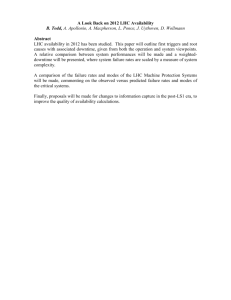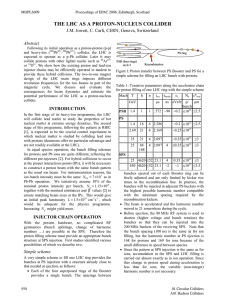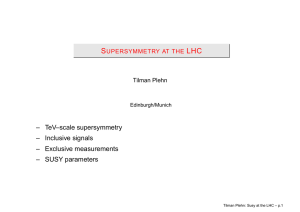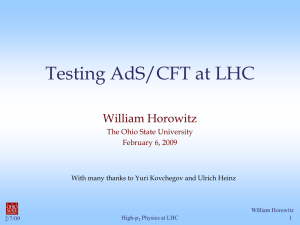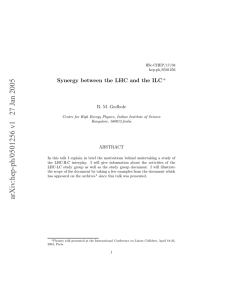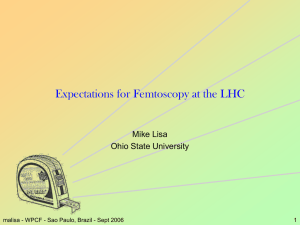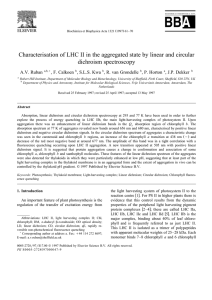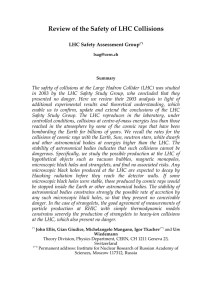Life History Calendars: A High-Impact Strategy for Learning Communities Sharon Breiner, Mike Finnegan, Chance Lee, Irma O’Dell, & Kerry Priest Assignment Purpose
advertisement
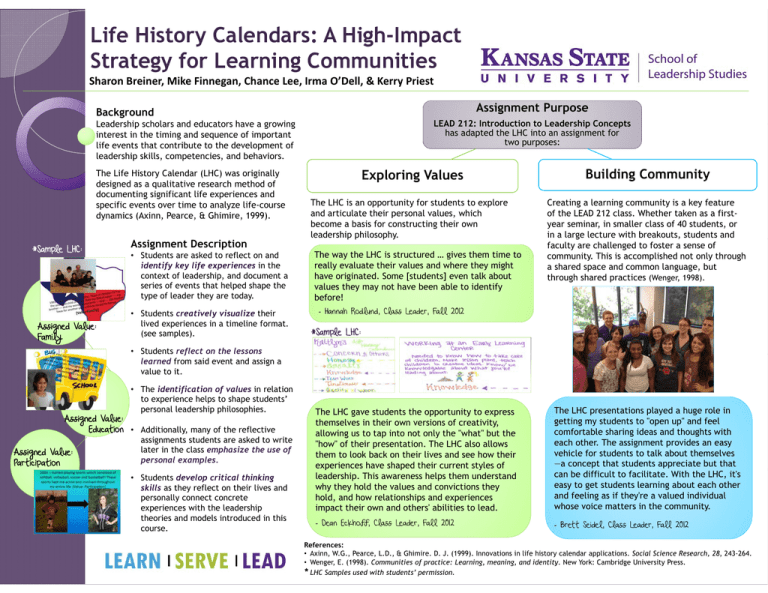
Life History Calendars: A High-Impact Strategy for Learning Communities Sharon Breiner, Mike Finnegan, Chance Lee, Irma O’Dell, & Kerry Priest Assignment Purpose Background LEAD 212: Introduction to Leadership Concepts has adapted the LHC into an assignment for two purposes: Leadership scholars and educators have a growing interest in the timing and sequence of important life events that contribute to the development of leadership skills, competencies, and behaviors. The Life History Calendar (LHC) was originally designed as a qualitative research method of documenting significant life experiences and specific events over time to analyze life-course dynamics (Axinn, Pearce, & Ghimire, 1999). *Sample LHC: Assigned Value: Family Assignment Description • Students are asked to reflect on and identify key life experiences in the context of leadership, and document a series of events that helped shape the type of leader they are today. • Students creatively visualize their lived experiences in a timeline format. (see samples). Exploring Values The LHC is an opportunity for students to explore and articulate their personal values, which become a basis for constructing their own leadership philosophy. The way the LHC is structured … gives them time to really evaluate their values and where they might have originated. Some [students] even talk about values they may not have been able to identify before! Building Community Creating a learning community is a key feature of the LEAD 212 class. Whether taken as a firstyear seminar, in smaller class of 40 students, or in a large lecture with breakouts, students and faculty are challenged to foster a sense of community. This is accomplished not only through a shared space and common language, but through shared practices (Wenger, 1998). - Hannah Rodlund, Class Leader, Fall 2012 *Sample LHC: • Students reflect on the lessons learned from said event and assign a value to it. • The identification of values in relation to experience helps to shape students’ personal leadership philosophies. Assigned Value: Education • Additionally, many of the reflective Assigned Value: Participation assignments students are asked to write later in the class emphasize the use of personal examples. • Students develop critical thinking skills as they reflect on their lives and personally connect concrete experiences with the leadership theories and models introduced in this course. The LHC gave students the opportunity to express themselves in their own versions of creativity, allowing us to tap into not only the "what" but the "how" of their presentation. The LHC also allows them to look back on their lives and see how their experiences have shaped their current styles of leadership. This awareness helps them understand why they hold the values and convictions they hold, and how relationships and experiences impact their own and others' abilities to lead. The LHC presentations played a huge role in getting my students to "open up" and feel comfortable sharing ideas and thoughts with each other. The assignment provides an easy vehicle for students to talk about themselves —a concept that students appreciate but that can be difficult to facilitate. With the LHC, it's easy to get students learning about each other and feeling as if they're a valued individual whose voice matters in the community. - Dean Eckhoff, Class Leader, Fall 2012 - Brett Seidel, Class Leader, Fall 2012 References: • Axinn, W.G., Pearce, L.D., & Ghimire. D. J. (1999). Innovations in life history calendar applications. Social Science Research, 28, 243-264. • Wenger, E. (1998). Communities of practice: Learning, meaning, and identity. New York: Cambridge University Press. * LHC Samples used with students’ permission.
